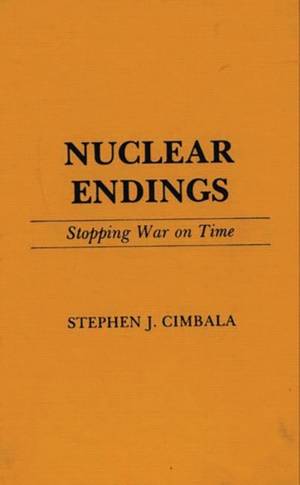
- Retrait gratuit dans votre magasin Club
- 7.000.000 titres dans notre catalogue
- Payer en toute sécurité
- Toujours un magasin près de chez vous
- Retrait gratuit dans votre magasin Club
- 7.000.0000 titres dans notre catalogue
- Payer en toute sécurité
- Toujours un magasin près de chez vous
Description
If a nuclear war between American and Soviet forces or the forces of their allies were to start, how would it end? This soberting analysis, one of the few published treatments of War termination, identifies the policies and strategic issues involved in the attempt to control and end a nuclear war should one ever start. The author presents both a comprehensive overview of the theory of war termination and a broad-based analysis of the specific aspects of the question. Throughout, the aim is to provide policymakers and students of military strategy with a tool for improved strategic war planning that emphasizes the importance of flexibility and durability rather than the current emphasis on damage infliction.
Cimbala begins by discussing the compelling reasons for studying war termination, among them the potential deterrent value of such study. He then introduced pertinent issues in the literature of war termination, including the notion of an `agreed battle', escalation control, intrawar deterrence, and coercive diplomacy. The bulk of the study is devoted to a detailed discussion of specific aspects of nuclear war determination. Ih his concluding chapter, Cimbala integrates these aspects into a coherrent theory of nuclear war termination and assesses the potential implications of strategic defenses for American nuclear deterrence strategies.Spécifications
Parties prenantes
- Auteur(s) :
- Editeur:
Contenu
- Nombre de pages :
- 318
- Langue:
- Anglais
Caractéristiques
- EAN:
- 9780275931650
- Date de parution :
- 13-03-89
- Format:
- Livre relié
- Format numérique:
- Genaaid
- Dimensions :
- 156 mm x 234 mm
- Poids :
- 625 g

Les avis
Nous publions uniquement les avis qui respectent les conditions requises. Consultez nos conditions pour les avis.






